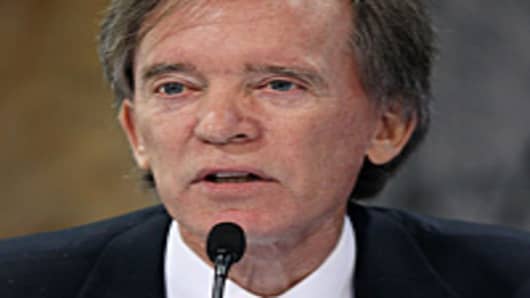The world's largest bond fund has moved out almost entirely from US debt and into that of emerging markets and corporations, Pimco's Bill Gross told CNBC.
Speaking a day after news broke that Pacific Investment Management Company had dumped its Treasurys holdingsfrom its $236.9 billion Total Return fund, the Newport Beach, Calif.-based firm's managing director said it would return once yields grew more attractive.
"It's not a question of dissing the United States or questioning the credit of the United States, but simply a maturity reflection," Gross said. Treasurys are "mispriced relative to the inflationary environment and the growth we see ahead and there are better alternatives in order to capture yield."
Gross primarily based his evaluation on the reduction in yields caused by the Federal Reserve's buying of close to $2 trillion in Treasurys, with more slated before the second leg of the program—often called QE 2—comes to an end.
"When a trillion and a half dollars worth of annualized purchasing power disappears I simply question as to who will buy them and at what yield," he said. "We're suggesting at these yields it might be problematic."
Instead, the firm has moved its money to other debt until the rate structure changes.
"Those would be corporate bonds, those would be a smattering of high yield bonds and a growing proportion of emerging market debt which yields in the 5 to 6 percent category," he said. "Are these bonds as safe as Treasurys? No, they are not triple-A types of investments but they're not overvalued based on quantitative easing procedures that we've seen over the past 12 months.
"So we've moved into Brazil and Mexico and moved money, yes, at the margin into Spain, which has a better balance sheet than the United States."
He said the Total Return fund has returned about 5 percent, whereas a Treasurys portfolio would yield about 2 percent.



